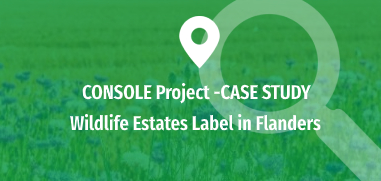Summary
Estates and territories adhere on a voluntary basis. They commit to maintain and developing high standards of wildlife management, with emphasis on habitats. This involves all aspects of multifunctional estate management. They are assessed according to a scientific based method (www.wildlife-estates.eu), which has been adapted to national or regional specificities.
Aspects covered are:
- Level of stillness/tranquility/surveillance
- Existence of measures that help the sustainable balance between agriculture,
silviculture, cinegenic management, pisciculture/fishing - Natural, semi-natural and intensive hunting or fishing grounds
- Biodiversity surface
- Food availability
- Water availability
- Presence of restoration measures and improvements to habitat holding capacity for
wildlife Presence of prey species - Presence of valuable species of fauna
- Treatment and destination of venison
- Implication of local actors
- Conservation of cultural and historic heritage
- Communication program in the Flemish Region of Belgium, more than 8500 hectares have been labeled. Monitoring is part of the assessment and the label is awarded on a 5 years basis. After this period, management goals and achievements need to be re-evaluated and WE Charter commitments renewed.
Objectives
Participation in the WE Label takes place on a voluntary basis by landowners and managers to work on sustainable management, conservation of biodiversity and development of fauna and flora, based on their own integrated vision of ecological, economic and social functions. Wildlife Estates regularly communicates about best practices and optimal management techniques that are developed and applied by members. It also informs the general public about the importance of estates in ecological, economic and social terms.
Public Goods









Problem description
Traditional multifunctional estates (landgoederen) and territories managed by hunting management associations (wildbeheereenheden) are major contributors to biodiversity in Flanders, although their action often is very private and not communicated at all.
This can only be achieved through the voluntary engagement of and intense cooperation between the many (mostly private) managers of the outlying areas such as farmers, estate managers, nature and forest managers, hunters, fishermen and others, all of whom are very important but often play an ignored role in preserving auna and flora. They form the most important link in the realization of sustainable rural development.
Where good results for biodiversity on private estates are already being measured, this is very often due to a well-balanced balance between the ecological, economic and social functions of management. The WE Label uncovers the quality of caring stewardship for the benefit of nature conservation to the outside world. The land managers who endorse the principles of the WE Label do so on a voluntary basis, not because it is imposed by the government.
It is their healthy, conservative attitude that is bearing fruit for biodiversity. Where good practices are used that consider both economic and ecological aspects, landowners and managers produce biodiversity, in other words: the natural support on which unique habitats and species can thrive. The added value that is offered here is enormous, also social. The WE Label wants to make this known and raise the expertise that comes with it as standard, so that many land managers can benefit from this expertise and refer to it.
